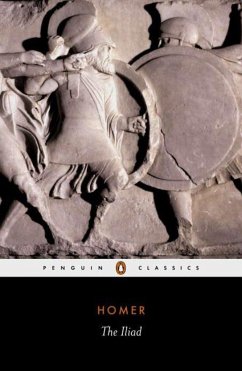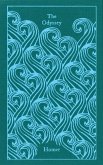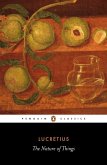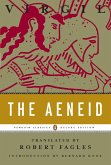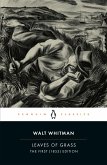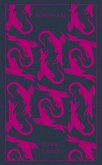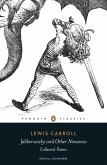11,99 €
inkl. MwSt.
Liefertermin unbestimmt
Melden Sie sich
hier
hier
für den Produktalarm an, um über die Verfügbarkeit des Produkts informiert zu werden.
oder sofort lesen als eBook

6 °P sammeln
- Broschiertes Buch
Tells the story of darkest episode in "Trojan War". At its centre is Achilles, greatest warrior-champion of Greeks, and his refusal to fight after being humiliated by his leader Agamemnon. But when Trojan Hector kills Achilles' close friend Patroclus, he storms back into battle to take revenge - even though he knows this may ensure his own death.
Andere Kunden interessierten sich auch für
![The Odyssey The Odyssey]() HomerThe Odyssey13,99 €
HomerThe Odyssey13,99 €![The Nature of Things The Nature of Things]() LucretiusThe Nature of Things12,99 €
LucretiusThe Nature of Things12,99 €![The Aeneid The Aeneid]() VirgilThe Aeneid17,99 €
VirgilThe Aeneid17,99 €![Leaves of Grass Leaves of Grass]() Walt WhitmanLeaves of Grass7,99 €
Walt WhitmanLeaves of Grass7,99 €![The Complete English Poems The Complete English Poems]() John DonneThe Complete English Poems16,99 €
John DonneThe Complete English Poems16,99 €![Jabberwocky and Other Nonsense Jabberwocky and Other Nonsense]() Lewis CarrollJabberwocky and Other Nonsense18,99 €
Lewis CarrollJabberwocky and Other Nonsense18,99 €![Jabberwocky and Other Nonsense Jabberwocky and Other Nonsense]() Lewis CarrollJabberwocky and Other Nonsense17,99 €
Lewis CarrollJabberwocky and Other Nonsense17,99 €-
-
-
Tells the story of darkest episode in "Trojan War". At its centre is Achilles, greatest warrior-champion of Greeks, and his refusal to fight after being humiliated by his leader Agamemnon. But when Trojan Hector kills Achilles' close friend Patroclus, he storms back into battle to take revenge - even though he knows this may ensure his own death.
Produktdetails
- Produktdetails
- Verlag: Penguin Books UK
- Artikelnr. des Verlages: 42831
- Seitenzahl: 560
- Erscheinungstermin: 30. Januar 2003
- Englisch
- Abmessung: 199mm x 129mm x 27mm
- Gewicht: 394g
- ISBN-13: 9780140447941
- ISBN-10: 0140447946
- Artikelnr.: 14132800
- Verlag: Penguin Books UK
- Artikelnr. des Verlages: 42831
- Seitenzahl: 560
- Erscheinungstermin: 30. Januar 2003
- Englisch
- Abmessung: 199mm x 129mm x 27mm
- Gewicht: 394g
- ISBN-13: 9780140447941
- ISBN-10: 0140447946
- Artikelnr.: 14132800
Homer was probably born around 725BC on the Coast of Asia Minor, now the coast of Turkey, but then really a part of Greece. Homer was the first Greek writer whose work survives. He was one of a long line of bards, or poets, who worked in the oral tradition. Homer and other bards of the time could recite, or chant, long epic poems. Both works attributed to Homer – the Iliad and the Odyssey – are over ten thousand lines long in the original. Homer must have had an amazing memory but was helped by the formulaic poetry style of the time. In the Iliad Homer sang of death and glory, of a few days in the struggle between the Greeks and the Trojans. Mortal men played out their fate under the gaze of the gods. The Odyssey is the original collection of tall traveller’s tales. Odysseus, on his way home from the Trojan War, encounters all kinds of marvels from one-eyed giants to witches and beautiful temptresses. His adventures are many and memorable before he gets back to Ithaca and his faithful wife Penelope. We can never be certain that both these stories belonged to Homer. In fact ‘Homer’ may not be a real name but a kind of nickname meaning perhaps ‘the hostage’ or ‘the blind one’. Whatever the truth of their origin, the two stories, developed around three thousand years ago, may well still be read in three thousand years’ time. E. V. Rieu was a celebrated translator from Latin and Greek, and editor of Penguin Classics from 1944-1964. His son, D. C. H. Rieu has revised his work. Peter Jones is former lecturer in classics at the University of Newcastle upon Tyne. D. C. H. Rieu is the son of E. V. Rieu, celebrated translator from Latin and Greek and Editor of Penguin Classics from 1944-1964. Peter Jones is former lecturer in classics at the University of Newcastle upon Tyne.
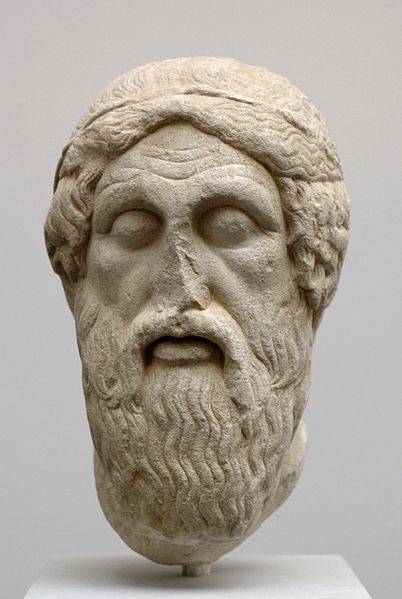
The IliadForeword
Introduction
Introduction to the 1950 Edition
Notes on this Revision
The Main Characters
Further Reading
Maps:
1. A reconstruction of Homer's imagined battlefields
2. The Troad
3. Trojan places and contingents
4. Homeric Greece
5. Greek contingents at Troy
Preliminaries
The Iliad
1. Plague and Wrath
2. A Dream, a Testing and the Catalogue of Ships
3. A Duel and a Trojan View of the Greeks
4. The Oath is Broken and Battle Joined
5. Diomedes' Heroics
6. Hector and Andromache
7. Ajax Fights Hector
8. Hector Triumphant
9. The Embassy to Achilles
10. Diomedes and Odysseus: The Night Attack
11. Achilles Takes Notice
12. Hector Storms the Wall
13. The Battle at the Ships
14. Zeus Outmanoeuvred
15. The Greeks at Bay
16. The Death of Patroclus
17. The Struggle Over Patroclus
18. Achilles' Decision
19. The Feud Ends
20. Achilles on the Rampage
21. Achilles Fights the River
22. The Death of Hector
23. The Funeral and the Games
24. Priam and Achilles
Appendices
1. A Brief Glossary
2. Ommitted Fathers' Names
Index
Introduction
Introduction to the 1950 Edition
Notes on this Revision
The Main Characters
Further Reading
Maps:
1. A reconstruction of Homer's imagined battlefields
2. The Troad
3. Trojan places and contingents
4. Homeric Greece
5. Greek contingents at Troy
Preliminaries
The Iliad
1. Plague and Wrath
2. A Dream, a Testing and the Catalogue of Ships
3. A Duel and a Trojan View of the Greeks
4. The Oath is Broken and Battle Joined
5. Diomedes' Heroics
6. Hector and Andromache
7. Ajax Fights Hector
8. Hector Triumphant
9. The Embassy to Achilles
10. Diomedes and Odysseus: The Night Attack
11. Achilles Takes Notice
12. Hector Storms the Wall
13. The Battle at the Ships
14. Zeus Outmanoeuvred
15. The Greeks at Bay
16. The Death of Patroclus
17. The Struggle Over Patroclus
18. Achilles' Decision
19. The Feud Ends
20. Achilles on the Rampage
21. Achilles Fights the River
22. The Death of Hector
23. The Funeral and the Games
24. Priam and Achilles
Appendices
1. A Brief Glossary
2. Ommitted Fathers' Names
Index
The IliadForeword
Introduction
Introduction to the 1950 Edition
Notes on this Revision
The Main Characters
Further Reading
Maps:
1. A reconstruction of Homer's imagined battlefields
2. The Troad
3. Trojan places and contingents
4. Homeric Greece
5. Greek contingents at Troy
Preliminaries
The Iliad
1. Plague and Wrath
2. A Dream, a Testing and the Catalogue of Ships
3. A Duel and a Trojan View of the Greeks
4. The Oath is Broken and Battle Joined
5. Diomedes' Heroics
6. Hector and Andromache
7. Ajax Fights Hector
8. Hector Triumphant
9. The Embassy to Achilles
10. Diomedes and Odysseus: The Night Attack
11. Achilles Takes Notice
12. Hector Storms the Wall
13. The Battle at the Ships
14. Zeus Outmanoeuvred
15. The Greeks at Bay
16. The Death of Patroclus
17. The Struggle Over Patroclus
18. Achilles' Decision
19. The Feud Ends
20. Achilles on the Rampage
21. Achilles Fights the River
22. The Death of Hector
23. The Funeral and the Games
24. Priam and Achilles
Appendices
1. A Brief Glossary
2. Ommitted Fathers' Names
Index
Introduction
Introduction to the 1950 Edition
Notes on this Revision
The Main Characters
Further Reading
Maps:
1. A reconstruction of Homer's imagined battlefields
2. The Troad
3. Trojan places and contingents
4. Homeric Greece
5. Greek contingents at Troy
Preliminaries
The Iliad
1. Plague and Wrath
2. A Dream, a Testing and the Catalogue of Ships
3. A Duel and a Trojan View of the Greeks
4. The Oath is Broken and Battle Joined
5. Diomedes' Heroics
6. Hector and Andromache
7. Ajax Fights Hector
8. Hector Triumphant
9. The Embassy to Achilles
10. Diomedes and Odysseus: The Night Attack
11. Achilles Takes Notice
12. Hector Storms the Wall
13. The Battle at the Ships
14. Zeus Outmanoeuvred
15. The Greeks at Bay
16. The Death of Patroclus
17. The Struggle Over Patroclus
18. Achilles' Decision
19. The Feud Ends
20. Achilles on the Rampage
21. Achilles Fights the River
22. The Death of Hector
23. The Funeral and the Games
24. Priam and Achilles
Appendices
1. A Brief Glossary
2. Ommitted Fathers' Names
Index
